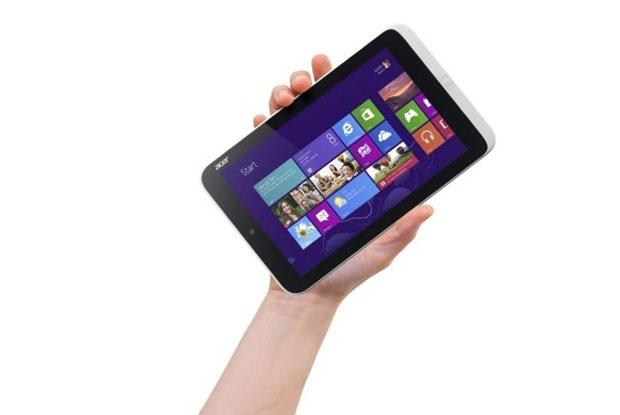 The Acer W3 tablet has already been accidentally leaked by Amazon, confirming its existence and its price tag, and now according to Acer’s Russian office, the tablet will see its official launch on June 4. The news comes from a Russian website, and as its quoting the general director of Acer Russia, this has slightly more credibility to it than most other rumors.
The Acer W3 tablet has already been accidentally leaked by Amazon, confirming its existence and its price tag, and now according to Acer’s Russian office, the tablet will see its official launch on June 4. The news comes from a Russian website, and as its quoting the general director of Acer Russia, this has slightly more credibility to it than most other rumors.
Acer has been on a roll over the past week, announcing the Aspire R7 and Aspire P3, plus the Iconia A1 Android tablet. However, despite the R7’s design shaking things up, it’s the Acer W3 tablet which could cause the biggest stir when it’s released. The reason is, it’s likely to be one of the first Windows 8 tablets to have a screen under 10-inches in size, and therefore a considerably lower price tag than the Surface and its rivals.
Amazon put the price at $380, which is $50 more than the basic iPad Mini, but based on other rumors, for this we expect to get an 8.1-inch screen, a 1.8GHz Intel Atom processor, 2GB of RAM, a pair of cameras and 32GB of storage space. Exactly how much of that will be available to use isn’t known, but there may not be much, so it’s a good thing the W3 will have a microSD card slot. Acer will also sell a range of accessories for the W3, including the obligatory case-that-becomes-a-stand, and a docking station with a keyboard.
Earlier this week, Acer’s CEO said the company had given up on Windows RT, saying it currently saw, “No value” in building hardware to support the unloved version of Windows. However, as is clear from the impending arrival of the W3 and its other new devices, it doesn’t feel the same way about the full version of Windows 8. If the W3 tablet does manage to beat other small Windows tablets onto store shelves, and keeps the lower price tag, it could prove to be a wise move.



